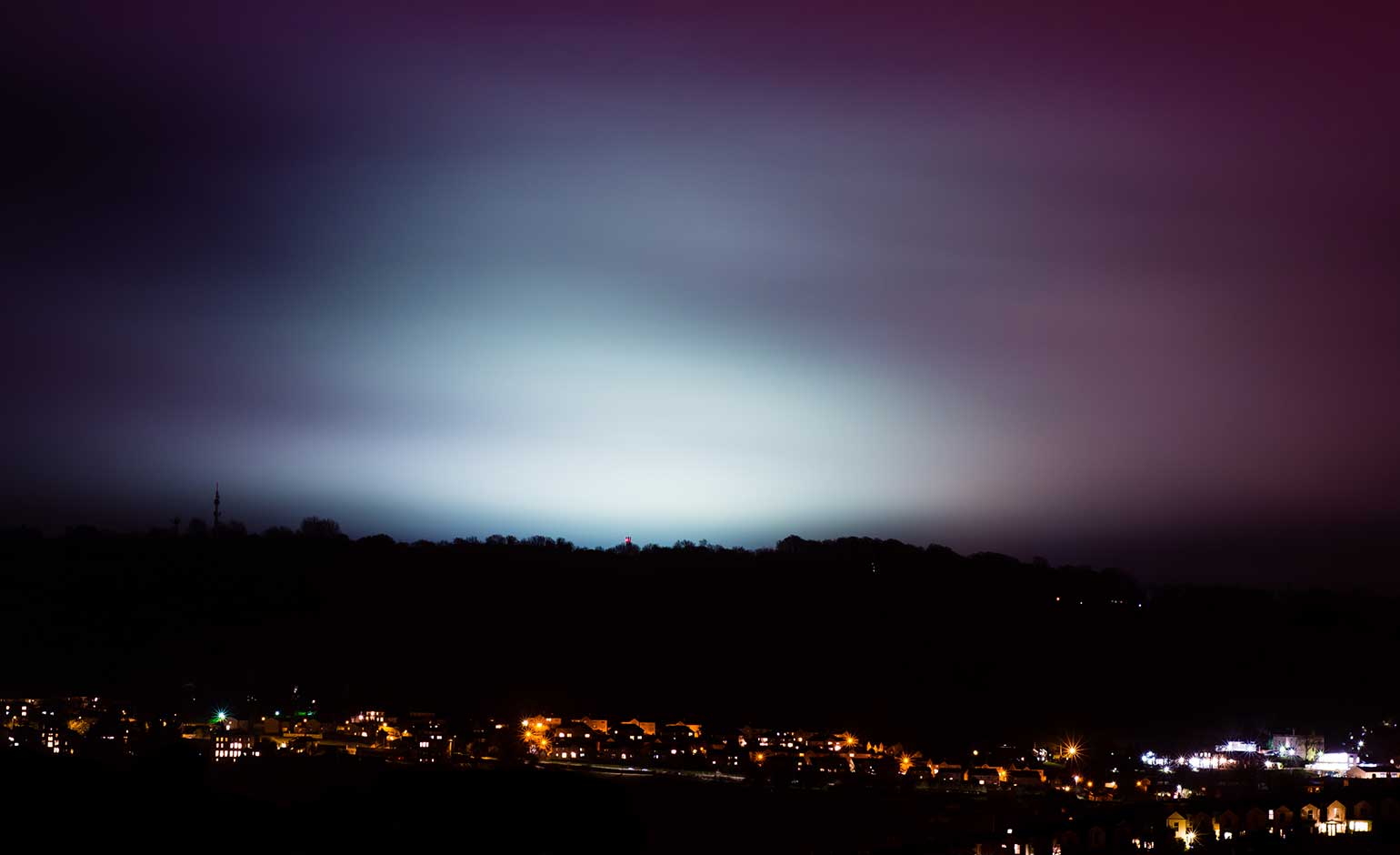Ahead of Earth Hour on 25th March, the Bath Preservation Trust is calling on local residents to join them in switching off or dimming lights to reduce sky glow and lower carbon emissions.

Light pollution from sports fields above Bath
Taking Part in Earth Hour will help to restore the natural darkness of the night sky over Bath for the benefit of humans and wildlife.
This is part of a wider call for a collective “dimming of the city” to tackle light pollution and reduce energy waste, in line with the charity’s “Conservation in Action” and “Dark Skies” themes for 2023.
The Bath Preservation Trust (BPT) is asking residents, property managers, and those using floodlights to switch off lighting during Earth Hour, at 8.30pm on 25th March.
Organisations and individuals can take to social media to publish their various initiatives using the hashtags #bathdarkskies and #earthhour.
Earth Hour is an international event organised by the WWF to inspire people to take climate action.
The simple idea asks people to switch off the lights for one hour as a symbolic stand.
188 countries have taken part and more than 17,900 landmarks around the world have switched off since it was introduced.
Alex Sherman, CEO of Bath Preservation Trust said: “Light pollution in Bath and its rural fringes continues to worsen, as our Green Belt is eroded and with the proliferation of cheap to run LED lights.
“Obtrusive lighting along the skyline increases light spill and sky glow and negatively affects the landscape and World Heritage Site setting, as well as upsetting and damaging wildlife.
“Earth Hour is an excellent opportunity to highlight these issues, and to encourage everybody in our city to “rewild the night” through collective action.
“In Bath we have several iconic illuminated landmarks including the Abbey, Prior Park College, Pulteney Bridge and the Roman Baths and the impact of switching off these lights for Earth Hour would be really powerful.”
Light pollution is an issue known to BPT’s team for many years, as it impacts one subsection of Bath’s community in particular, local amateur astronomers.
Alex continued: “The team at the Herschel Museum of Astronomy, owned and operated by BPT, work very closely with Bath Astronomers, a local astronomy club running regular stargazing events throughout the year from the garden of the Museum.
“Some nights the light pollution is so bad that stargazers are unable to see stars and planets that the historic astronomers William and Caroline Herschel would have seen with ease over 200 years ago.”
William and Caroline Herschel lived and worked in Bath from 1766-1782, where they made many of their discoveries, including the detection of the planet Uranus by William.
In the garden of the house where the siblings lived at 19 New King Street, now the Herschel Museum of Astronomy, visitors can look up into the sky from the very spot where William and Caroline Herschel once stood.
Unfortunately, what people can see today is a weakened version of the crisp and lustrous view the Herschel siblings would have enjoyed.
Limited oil lamps in the streets have long been replaced by LED street lighting, and other forms of industrial and domestic lighting, the light from which bleeds upwards, illuminating not just the streets below but also the night sky above.



